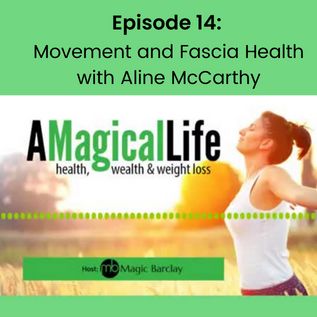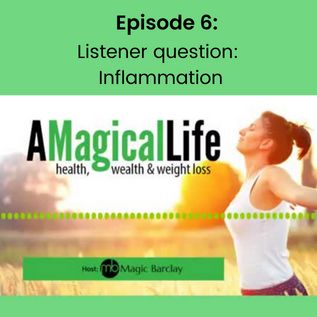
Trauma’s Lasting Impact & The Path to Recovery
Understanding the profound impact of trauma on both mental and physical health is crucial. Trauma, often resulting from deeply distressing or disturbing experiences, can lead to a range of chronic health issues, mood disorders, addictions, toxic relationship cycles, and even obsessions. This blog explores trauma’s lasting impact and highlights effective treatments for recovery.
🧠Trauma and Its Impact on Mental Health
Trauma has a profound and often lasting impact on mental health. It can stem from various experiences, such as accidents, abuse, loss, or natural disasters, and its impact on mental health varies widely and is deeply significant.
Key Mental Health Disorders Linked to Trauma
- Post-Traumatic Stress Disorder (PTSD): This is one of the most recognized mental health conditions associated with trauma. PTSD can manifest in flashbacks, severe anxiety, uncontrollable thoughts about the traumatic event, and avoidance behaviors.
- Depression and Anxiety: Trauma can lead to long-term feelings of sadness, hopelessness (depression), or excessive worry and fear (anxiety). These conditions might develop immediately after the trauma or even years later.
- Emotional Dysregulation: Individuals who have experienced trauma may find it difficult to regulate their emotions. They might experience sudden mood swings, intense anger, persistent sadness, or emotional numbness.
Trauma and Its Broader Psychological Effects
- Trauma can disrupt one’s sense of security, leading to feelings of vulnerability and helplessness. This can affect one’s worldview, relationships, and self-esteem.
- Complex trauma, which occurs due to repeated or prolonged exposure to traumatic events, can have even more intricate effects, including difficulties in forming healthy relationships and distorted self-perception.
👀Understanding Hyper-Vigilance as a Result of Trauma
Trauma can often lead to a state known as hyper-vigilance, a heightened state of sensory sensitivity accompanied by an exaggerated intensity of behaviors whose purpose is to detect threats. Hyper-vigilance is commonly seen in individuals who have experienced traumatic events, particularly those with post-traumatic stress disorder (PTSD).
The Nature of Hyper-Vigilance in Trauma Survivors
- Hyper-vigilance involves being constantly on alert for danger, even in safe environments. This can manifest as increased anxiety, a feeling of being ‘on edge,’ or an overactive startle response.
- Trauma survivors may find that their senses are perpetually tuned to pick up any signs of threat, leading to exhaustion and difficulty focusing on everyday tasks.
Impact of Hyper-Vigilance on Daily Life
- Living in a state of hyper-vigilance can be draining and can significantly impact one’s quality of life. It can disrupt sleep, concentration, and the ability to engage in social activities.
- Relationships can also be affected, as constant alertness may be misinterpreted as distrust or paranoia.
🍷Trauma’s Role in Addiction and Obsessions
The relationship between trauma and addiction is complex and intertwined. Trauma can lead to a dysregulated stress system, making individuals more vulnerable to addictive behaviors. This vulnerability is further heightened by feelings of depersonalization and numbness, common responses to traumatic experiences. This explains why individuals with a history of trauma are more likely to develop addictive behaviors and obsessions. Trauma’s lasting impact often contributes to a vicious cycle involving unhealthy coping mechanisms, such as alcoholism, substance abuse, smoking and even overeating, and many other eating disorders, which can arise from the physiological and psychological effects of trauma.
🗣Trauma’s Lasting Impact on Communication and Relationships: Understanding Codependency, Hyper-Independence, and Trauma Bonds
Some types of traumatic experiences profoundly influence not only the psyche but also communication patterns and relationship dynamics. It can affect how individuals interact with others, notably in forms of codependency and hyper-independence, as well as in the development of trauma bonds in relationships.
Codependency in Trauma Survivors
- Trauma, especially when experienced in early life or within relational contexts, can lead to codependent behavior. This is a pattern where the trauma survivor excessively relies on others for emotional support, approval, and identity.
- Codependent individuals might find it challenging to set boundaries, often prioritizing others’ needs over their own, leading to unbalanced and unhealthy relationships.
- In communication, this can manifest as an inability to express one’s own needs and feelings clearly, for fear of causing conflict and upsetting or losing the other person.
Hyper-Independence as a Trauma Response
- Conversely, some trauma survivors swing to the other end of the spectrum, becoming hyper-independent. This is often a defense mechanism to avoid vulnerability or reliance on others, which they may perceive as risky due to past trauma.
- Hyper-independent individuals might struggle with intimacy and trust, tending to keep others at a distance. Their communication may be marked by a reluctance to seek or accept help and an emphasis on self-reliance, even to their detriment.
- This can lead to isolation and difficulty in forming deep, meaningful relationships, as they may inadvertently push people away.
Trauma and Toxic Relationship Cycles
- Trauma can also lead to destructive relationship patterns, known as trauma bonds. These relationships are characterized by a detrimental pattern of emotional dependency and addiction to a partner, despite the fact that they are harmful.
- Individuals in such relationships might exhibit heightened reactions to perceived threats, often characterized by “fight, flight, or freeze” responses. These are more intense in those with unresolved trauma or PTSD, further complicating romantic relationships.
- Healing from trauma bonds requires addressing the root trauma and changing one’s physical and emotional responses to past experiences.
🤒Trauma and Chronic Illness
Recognizing trauma’s lasting impact is vital in tackling chronic health issues. Studies show that traumatic experiences, particularly in childhood, can lead to both emotional and physical health problems. This increased risk extends to serious conditions like heart disease, stroke, obesity, diabetes, and cancer. Research, including the Adverse Childhood Experiences (ACEs) study, links trauma with higher instances of chronic stress and substance abuse, subsequently elevating the risk of developing illnesses such as cardiovascular and respiratory diseases, as well as metabolic disorders.
Research suggests that experiencing traumatic stress during childhood can make individuals more likely to develop autoimmune diseases later in life. Additionally, chronic stress has been found to potentially cause changes in the immune system through the release of stress hormones. This highlights the lasting effects of early trauma on long-term health.
💡Effective Treatments for Overcoming Trauma
To break this cycle and heal from trauma, the various treatments below can be effective.
Psycho-neuro-endo-immunology (PNEI): PNEI is a scientific field of study that explores how our nervous, hormonal, and immune systems work together to affect our health. This approach goes beyond traditional medical views, focusing on how these systems interconnect.
PNEI techniques have been shown to reduce stress-related symptoms and regulate stress hormones like cortisol, which are crucial in cases where trauma gets stuck in the body. By applying PNEI principles, individuals can manage the effects of trauma more effectively, prevent burnout, and reduce the risk of stress-related health issues.
Result-Based Coaching: Result-based coaching is a mix of life coaching, personal development coaching, and health coaching all in one, as it doesn’t focus on just one area. The goal is to improve all areas of your life such as overcoming trauma, addictions, eating disorders, managing stress better, improving your career, and learning effective communication skills to improve your relationships and work situation.
When it comes to healing from trauma, result-based coaching is particularly vital for those who find themselves in fight, flight, fawn, survival mode, as a result of their traumatic experiences. As a crucial part of this approach involves limbic work, which is aimed at retraining the brain to react differently to triggers from past experiences. This technique plays a pivotal role in leading individuals towards a sense of calm and safety, which is fundamental in the successful healing and recovery from trauma.
Eye Movement Desensitization and Reprocessing (EMDR): EMDR is a well-established treatment for trauma, particularly effective for PTSD. It involves the patient recalling traumatic memories while receiving bilateral sensory input, like side-to-side eye movements, which helps reduce the emotional impact of these memories.
Internal Family Systems (IFS): IFS is a psychotherapeutic approach that identifies and addresses various sub-personalities or ‘parts’ within each person. It helps individuals heal by recognizing and integrating these parts, which may carry burdens of past trauma.
Cognomovement: This method integrates cognitive and physical exercises, helping the brain to process and release emotional and physical trauma. Cognomovement often involves movement-based activities that align with cognitive tasks, aiding in trauma recovery.
Tapping (Emotional Freedom Technique): This technique involves tapping on specific acupressure points while focusing on emotional issues. EFT aims to balance energy systems in the body and alleviate emotional distress, especially useful in treating trauma.
Mindfulness-Based Stress Reduction (MBSR): MBSR is a therapeutic approach that uses mindfulness meditation to reduce stress and improve mental and physical health. It helps individuals focus on the present moment, reducing the impact of traumatic memories.
Cognitive Behavioral Therapy (CBT): CBT is a widely used approach that addresses negative thought patterns and behaviors resulting from trauma. It helps individuals reframe their thinking and develop healthier coping mechanisms.
Narrative Therapy: This therapy involves reframing one’s personal narrative, emphasizing empowerment and rewriting the trauma story. It helps individuals gain a sense of ownership over their life stories and find meaning beyond their trauma.
Somatic Experiencing: Developed by Dr. Peter Levine, this body-oriented therapeutic approach helps release the physical tension that remains in the body post-trauma. It uses awareness of body sensations to help people “renegotiate” and heal traumas rather than relive them.
Art Therapy: The creative process of creating art is used in art therapy to enhance a person’s emotional, mental, and physical health. It allows individuals to express and process complex traumatic emotions non-verbally. Each of these treatments addresses different aspects of trauma, offering a comprehensive approach to healing.
⭐️Begin Your Trauma Recovery Journey with Our Free Root Cause Analysis
If you are struggling with the effects of trauma, remember that help is available. You don’t have to face this alone. Experiencing trauma is bad enough but you don’t have to let it affect the rest of your life. Seeking professional help is a transformative first step. To start your journey on trauma recovery take advantage of our free worldwide service, our root cause analysis.
This analysis goes deep into your physical and emotional health history and then provides tailored advice and information to help guide and improve your situation. We can also have a more in-depth conversation with you to figure out the most effective trauma recovery treatment that is right for you. Recovering from trauma is a step-by-step journey, and you deserve unwavering support at every turn. This assistance is crucial in helping you move beyond just surviving and towards a life of truly thriving.
💁Conclusion
Trauma impacts not just the mind but also the body, often leading to chronic health issues. It’s important to understand that trauma’s effects can extend to many areas of your life, and without proper treatment, these effects are unlikely to diminish. Recognizing and addressing trauma’s lasting impact is essential for a healthier, more fulfilling life. Seeking and receiving the right treatment is crucial in effectively handling the difficult consequences of trauma and embarking on a journey towards healing and recovery.



